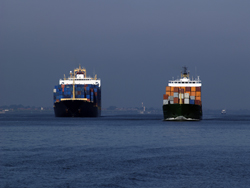Securing the high seas
Old-fashioned pirate ships may be a thing of the past, but the seas still face many security challenges. With issues like contraband trade, illegal migration and terrorism cropping up all over the world, maritime security has become a priority for the EU. Many European countries are vulnerable to threats by sea, and a coordinated European maritime security strategy is in order. Fully funded by the EU, the Operamar project examined how to increase seamless information exchange and develop a sufficient interoperability of current maritime security management systems. It has probed solutions while considering technical constraints, institutional obstacles and legislation. The project team has conducted about 40 visits around different European coastal areas to understand the current state of affairs with respect to maritime security. It has examined how maritime surveillance is taking place and who is doing what. Security and law enforcement issues, as well as response of relevant authorities in emergencies, has also been investigated. The completed Operamar study is now shaping a clear way ahead for implementing a joint EU framework for coordination and cooperation in maritime security. It is enhancing connectivity among existing and future information systems used by the various maritime communities, as well as improving awareness of any developing security situations. The study also offered recommendations on upgrading old information systems to enable more openness, data sharing, and interoperability between systems. It capitalised on lessons learned, aiming to garner the trust of the various users. A medium- and long-term vision of operational concepts and technical solutions has been outlined to progressively develop harmonised interoperable procedures for managing maritime security initiatives. This includes effective response operations as well. Significant progress has been achieved in developing a secure controlled data-sharing solution, known as a CERIS.Tbox. This is as a flexible, open and modular framework that fosters synergy and cross-fertilisation between activity sectors, institutions and commercial operators. The ultimate goal is to develop and increase response capabilities and resource/cost effectiveness, promote quality shipping, foster sustainable activities, and avoid unnecessary duplications. From a technical perspective, the sees no major barriers to developing an integrated, advanced management solution for coastal security. Once the completed study and its components are fully implemented, the high seas should be much easier and more cost-effective to secure.



